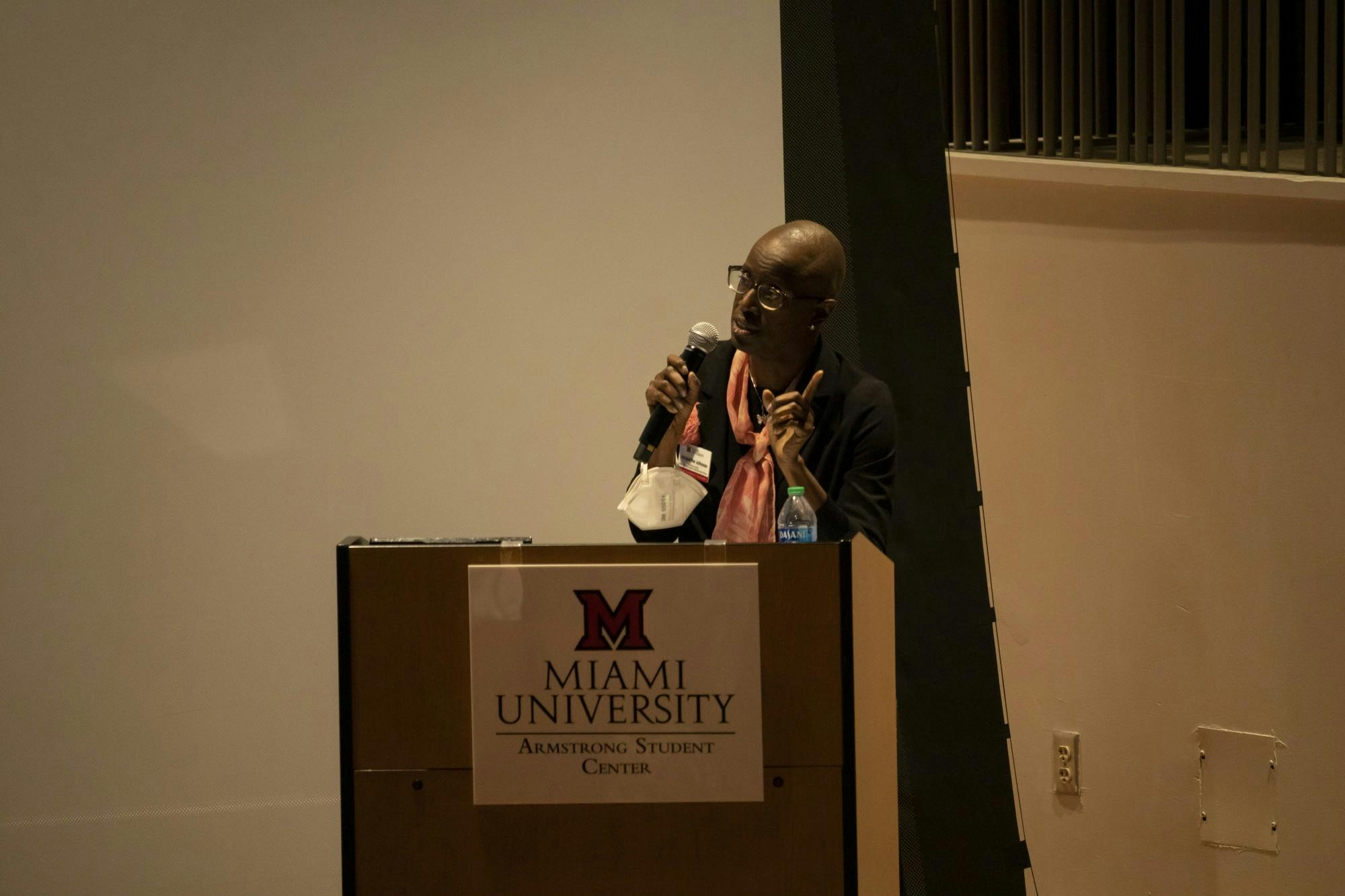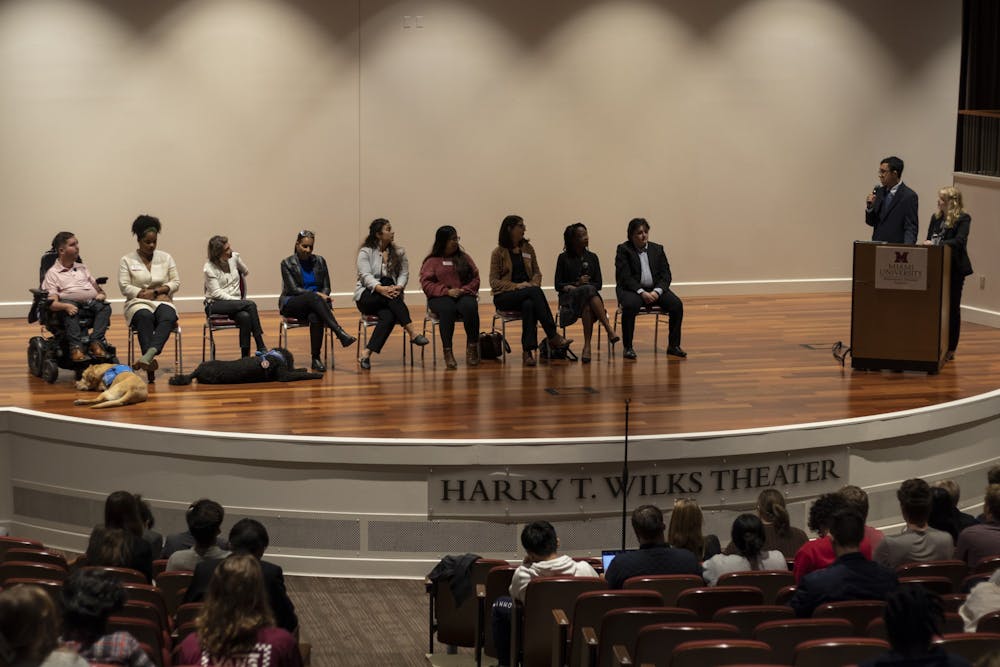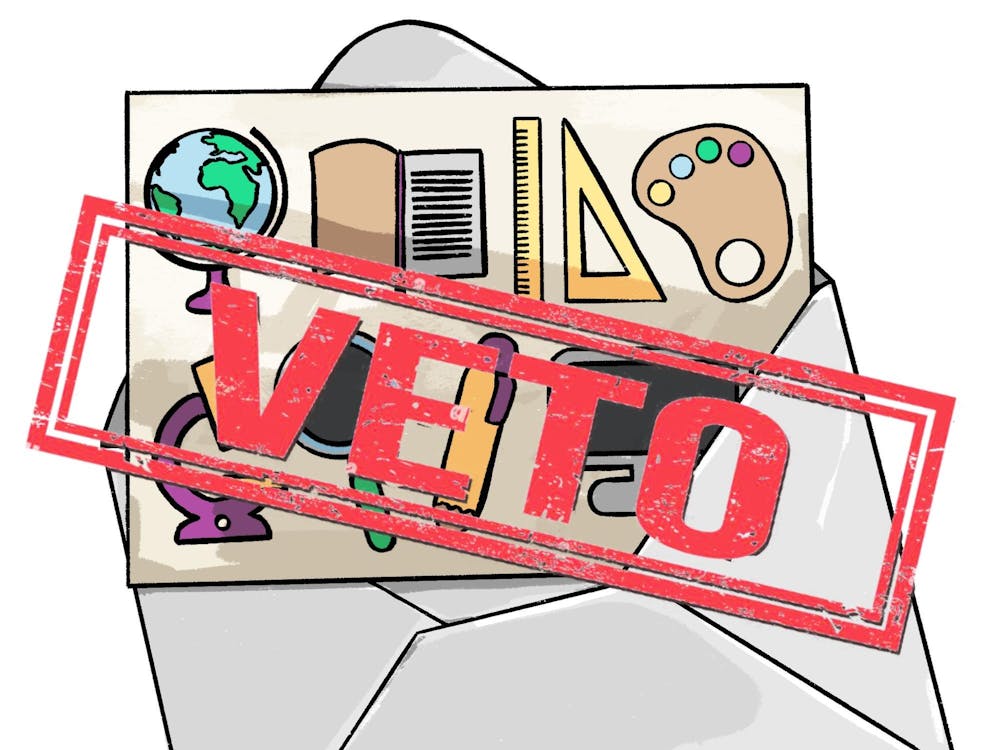Miami University’s Associated Student Government (ASG) and Diversity Affairs Council (DAC) held their fourth annual Inclusion Forum on Wednesday, Sept. 28, themed “Essential Equity and Access.”
Kennedy Hughes, secretary of diversity, equity and inclusion (DEI), and Evan Gates, president of DAC, organized the event, which was held in Wilks Theater in Armstrong Student Center. Around 100 students and faculty attended.
Jacqueline Johnson, a university archivist at Miami, was the keynote speaker of the forum. She talked about the history of Freedom Summer and its continued impact today.

Johnson showed the audience a photo of the grave of James Chaney, one of the three students killed during Freedom Summer. The headstone is held down by steel bars and the earth is covered in cement to prevent desecration.
“We sometimes believe that the civil rights movement is over, that we won, that everything is equitable and just,” Johnson said. “But I leave you today with this image to let you know that we must continue to fight for equality and social justice.”
Several multicultural student organizations on campus attended the forum, drawing attention to key issues affecting their prospective demographics. The Asian American Association, UNIDOS, Spectrum and the Minority Association for Pre-Health Students were among those that presented.
After the student organization presentations came a panel of Miami faculty, staff and student leaders moderated by The Miami Student’s Meredith Perkins and Michael Vestey.
The panel included Gates; Naaborle Sackeyfio, an assistant professor of global and intercultural studies; Denise Baszile, associate dean for diversity and student experiences in the College of Educational Health and Society; Amitoj Kaur, Miami’s Student Body President; Dan Darkow, assistant director of Student Disability Services; Kara Strass, director of Miami tribe relations; Dasha Wood, director of the Center for Student Diversity & Inclusion; Dr. M. Cristina Alcalde, vice president for Institutional Diversity & Inclusion and Dr. Sara Acevedo Espinal, assistant professor of disability studies and educational psychology.
Gates talked about the importance of community in tackling institutional problems.
“The change you want to see might be slow-moving … but in building community and connections you can start to see something,” Gates said. “The change I’ve seen since the fall of my freshman year for trans issues has been so dramatic.”
Strass spoke about the 50th anniversary of the relationship between the Myaamia tribe and the university, and what she hopes to see moving forward.
Enjoy what you're reading?
Signup for our newsletter
“Ultimately the goal is reciprocity, so that the work continues to serve the needs of the Miami Tribe of Oklahoma,” Strass said, “and students, faculty and staff have the opportunity to learn from those initiatives.”
Naaborle Sackeyfio, an assistant professor of global and intercultural studies, discussed the importance of discussing intersectionality in departments outside of her own, such as in marketing or computer science.
“Making more visible the myriad connections that connect people globally, whether that’s economically or in terms of marketing,” Sackeyfio said, “can help change the cognitive map that often works subconsciously in terms of how we’re engaging with different people.”
Denise Taliaferro Baszile, associate dean for diversity and student experiences in the college of educational health and society, answered a question about barriers within Miami’s administration that slow progress of DEI goals.
“We expect a lot from the institution, and we should, but I want to remind people that the institution is people,” Baszile said. “When we think about change, it’s going to start with us because we ask for it, because we created the space, because we don’t give up asking.”
The event concluded with a call to action delivered by Maysa Constandinidis, director of advocacy for DAC.
“Do you see the values of equity and access reflected in Miami today?” Constandinidis asked. “There are many passionate and dedicated people committed to enacting a vision centered on those ideas. We must take actionable steps to make that vision possible.”
Hughes said they learned a lot from both planning and attending the event.
“You don’t really ever get to see [DEI] in a manner that’s so in front of you, where intersectionality is so emphasized and an integral part of the program overall,” Hughes said. “It was just really cool to see all of the different representations of how students live on campus.”




